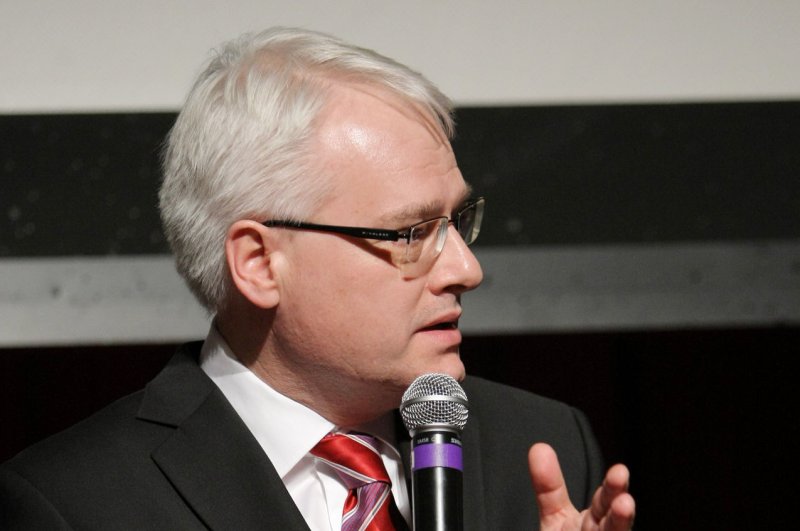ZAGREB, Croatia, Dec. 28 (UPI) -- A runoff election between Croatian President Ivo Josipovic and challenger Kolinda Grabar-Kitarovic will take place in two weeks after candidates failed to reach a majority vote in Sunday's presidential election.
Social Democrat Josipovic won 38.48 percent of votes while Croatian Democratic Union candidate Grabar-Kitarovic secured 37.18 percent with 99.84 percent of polling stations reporting, according to the Republic of Croatia State Election Commission.















